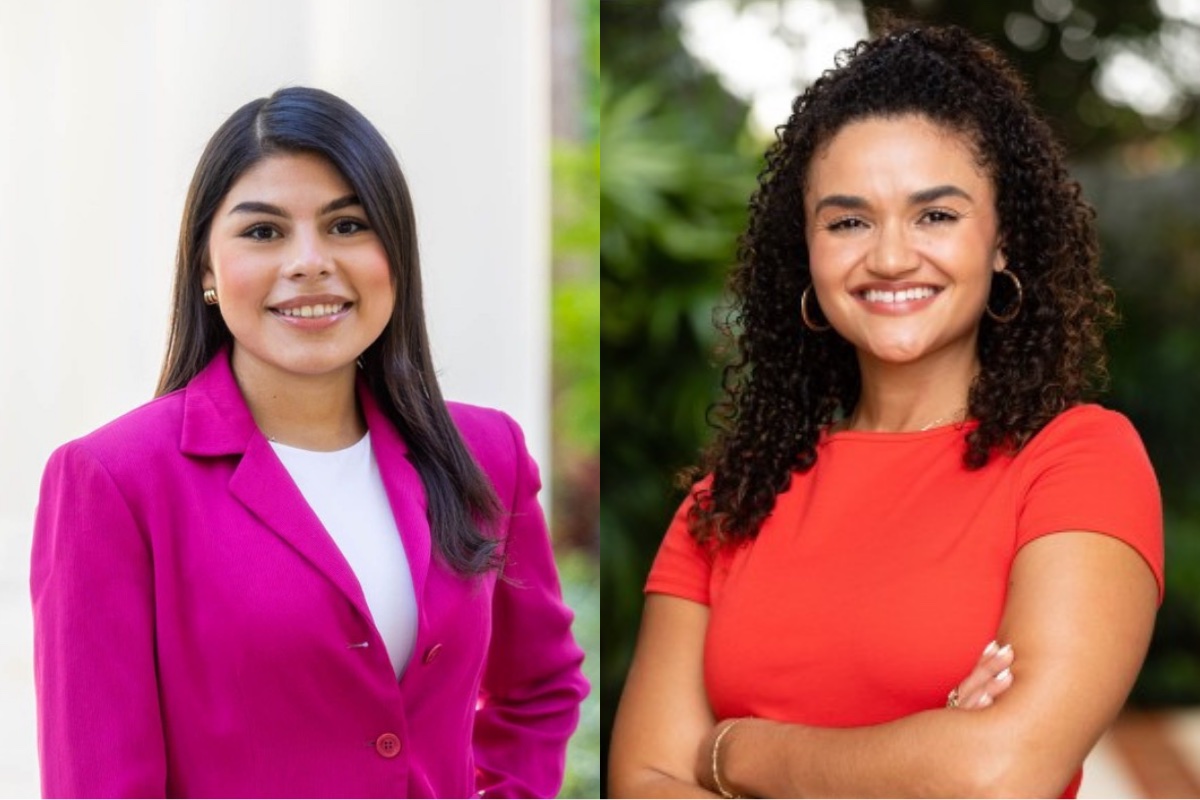In efforts to foster racial diversity, inclusion, equity and justice, University leaders see great progress at Palm Beach Atlantic. They also point to specific areas where PBA can grow. On Wednesday, more than 200 members of the PBA community came together via Zoom for a town hall on these issues, hosted by the new Council for Intercultural Engagement.
“It’s a night-and-day difference” comparing PBA today to when he was a student, said Dr. Jay Jackson, a PBA alumnus who is now Gregory School of Pharmacy assistant dean of students. “I am deeply encouraged.”
Jackson joined eight other key leaders as speakers in the town hall, citing areas of progress and areas of burden.
President Dr. Debra A. Schwinn told of the grief she felt watching the national news. “Our world keeps repeating some of the negative cycles and events,” she said. “And so I’m burdened that our students are still growing up in an environment that’s not fair.”
During the past summer of racial unrest nationwide, Schwinn said, University leaders “wanted to do something concrete” in response to the needs they saw. As a result, PBA established a scholarship for students of color, naming it for Dr. Terriel Byrd, professor of urban Christian ministry. Next, the university established the Council for Intercultural Engagement, appointing Byrd as fellow for the council.
Byrd opened his town hall remarks with a definition of equity: “the guarantee of fair treatment, access, opportunity and advancement of all students, faculty and staff while at the same time striving to identify and eliminate barriers that have prevented the full participation of some groups.” He said the council he leads will establish ad hoc committees to address specific goals of equity, including faculty/staff recruitment and retention from under-represented groups.
Dr. Nathan Lane, associate provost for instruction, explained that his three children are persons of color, and he looks forward to them attending PBA. “I really want this to be the best place possible for them when they get here,” he said, “and I want as many faculty as I can get that look like them.”
Lane also pointed to the need for minority influences in the curriculum here. Traditionally, textbooks used have been mostly from a Western, white perspective, he said.
Courtney Lovely Evans is the first minority person to hold the position of director of athletics at Palm Beach Atlantic, and she did her undergraduate and graduate studies in predominantly white schools. “I recognize that representation matters,” she said.
Evans recalled that shortly after Schwinn became president in May, Schwinn asked her to assemble a panel of minority students that the president could meet with, to learn about their experience at PBA. “What makes me hopeful is that this is a priority for this administration,” Evans said.
Danne Pierre, director of multicultural student programs and first year and transfer experience, told about ways the University supports and encourages minority students, including the event Meet Your Neighbor, held at the beginning of the school year. Students of color are invited to meet together and network with faculty and staff. “Students need to see themselves represented in faculty and staff and they need to know that they have advocates on campus,” said Pierre.
This fall, because of COVID-19, Meet Your Neighbor happened on Zoom, “and we were able to invite alumni from around the world,” said Pierre. “Students really appreciated that.”
Pierre directs the student organization MOSAIC, helping students “see, celebrate and explore cultural diversity.” The organization offered a mentoring opportunity via Zoom, and 17 students were paired with mentors, Pierre said. “Students are emailing me now letting me know how much they are getting to know faculty, staff and alumni.”
Dr. Bernie Cueto, vice president for spiritual development and campus pastor, talked about chapel services dealing with reconciliation and also about his pastoral ministry with students. Coaching and mentoring, he works to prepare students for their “launch into the real world,” where they can be agents for change.
Jackson feels a similar responsibility within the School of Pharmacy, seeking to prepare students “to be advocates for patients, in erasing some of the disparities that exist in the American health care system.”
Also sharing in the town hall were Dr. Bob Lutz, vice president for student development; and Dr. Stephanie Bennett, professor of communication and media ecology and Fellow for Student Engagement. Laura Bishop, executive vice president for advancement, served as moderator.


